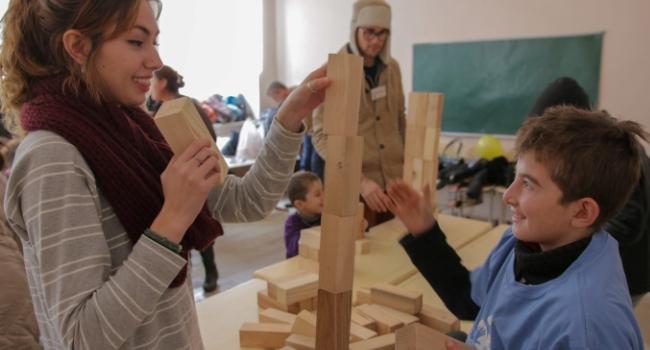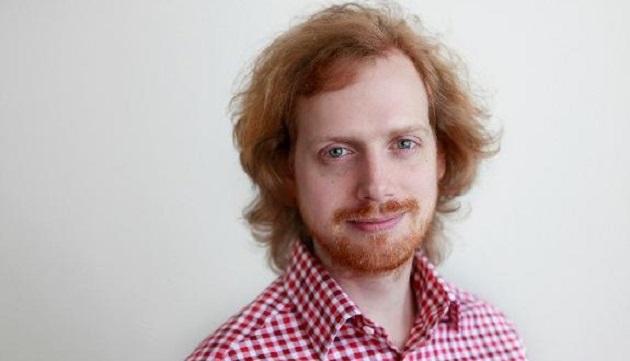Inclusive education from the Czech Republic to Georgia to the USA

If you were to tell people anywhere else in the world that inclusive education was not required by law in the Czech Republic until 2016, they would be shocked. If you were to tell them that the main reason for this change having to be forced onto the system by the state is the absurd number of Romani children attending the so-called “practical schools”, they would have a hard time believing you.
For that reason, I have decided to take a look at education systems abroad and how they approach the children who, in the Czech Republic, would not be considered “normal”. By pure coincidence I have found information comparing two absolutely different countries – Georgia and the USA – from which I can provide both my personal experience and the knowledge of local experts.
A brief history of inclusive education in the USA
Racial integration in the schools first began to be discussed in the USA during the first half of the 1950s, when Oliver Brown, an African-American, decided that under the Constitution of the United States of America his daughter had the right to the same education as that provided to any white child. Their struggle through the courts lasted approximately seven years, and it was not until 1958 that the first African-American student was able to successfully complete high school studies together with white children – and most importantly, to do so under conditions of peace.
During the 1980s, when the idea of inclusive education (i.e., the education of all children together, including those living, for example, with physical disabilities) began to develop in the USA, including children on the basis of ther skin color was no longer controversial. As in the case of the inclusion of African-Americans into the common school system there, it was parents who were behind the idea of inclusive education for children living with disabilities.
These parents began to realize that while their children might be limited in some ways, that did not necessarily mean they had to be excluded from school collectives. Their children might not be able to participate in all of the activities – or it might sometimes take them longer to comprehend something – but in terms of their academic achievement they were able to perform to a similar level as their schoolmates.
Several advantages to educating all children together were immediately ascertained: Students collaborated more, learning to aid not just those who needed assistance, but everybody else; people who had been fated to exclusion working life as adults were able to find ways to apply themselves when they grew up; and entire classes even became more enthusiastic about studying, because children living with disabilities generally complain less about their curriculum, school environment, and teachers. Just like anywhere else where something new is put into practice, it took a longer time (in the USA, an entire generation) to test various practical teaching methods, introduce technical improvements to school buildings, and mainly to win the trust of parents and school administrators in the benefits of inclusion.
The change to the education system required money to train existing teachers and new assistants. Today in the USA nobody is alarmed that children with various special needs are involved in classic instruction, and it is generally known that the investments made into the program, especially those made in the beginning, are paying off.
Georgia knows education deserves investment
On the other side of the globe, in Georgia, a law on inclusive education was adopted 10 years ago. Most Czechs probably imagine Georgia to be an eastern country whose greatest wealth lies in its mountains and as a country that was recently at war with Russia.
Until the year 2000 there was no potable water even in the capital, Tbilisi, and locals were able to use electricity just two hours a day – and to this day the GDP of Georgia is approximately 13 times smaller than that of the Czech Republic. Despite such material obstacles, though, the education of all children together is commonplace there.
The driving force behind the change in Georgia was the women teaching in the small town of Zestafoni, who had no pupils living with disabilities in their classes but knew that several lived in the community. It took them approximately two years to manage to convince the children’s parents they had nothing to fear should they enroll their children into school with their “normal” schoolmates.
At the time, naysayers claimed that what lay behind the accelerated adoption of the law on inclusive education in Georgia was just the fact that the inclusion of individuals who had previously been left out of mainstream education was purely a cost-cutting measure. It costs more to establish separate “practical” or special schools, frequently there are not enough children with special needs living in one location to create a full class, and their families, who are on the brink of financial collapse anyway, do not have the money to regularly transport their children to more distant municipalities to attend school.
The state would have to cover the costs of children’s transportation and pay more teachers to open more classes – and the children would be 100 % unable to apply themselves as adults unless they achieved at least a basic education. Jeremy Gaskill, a graduate of Columbia University in the USA and the director of the McLain Association for Children organization, which works in Georgia aiding the education of children living with disabilities or social disadvantage, says that: “It was important for this process to be launched. To this day it is not perfect, neither in Georgia or in the USA, but things are improving and I see enormous positive changes that are happening. During the 10 years that inclusive education in Georgia has been a topic, the country has made big progress, despite the fact that, unlike Western countries, they face many other problems, such as high unemployment, for example.”
Inclusion ultimately makes more room for all
In the cases of Georgia and the USA, just those children who are at least able (with the aid of their assistants/class/specially trained teachers) to keep up with the instruction, more or less, are those who are enrolled into mainstream education as a matter of course. Those considered unable to be educated together with other children are actually very few – unlike the Czech Republic, where, as of last year, as many as 23 % of Romani children were still attending separate “practical” schools.
When so many children living with lesser forms of disability are included in mainstream education, then there is financing and room for quality instruction for children living with profound disability, even in a poor society like Georgia, and such children have a chance to be educated in well-equipped schools in classes of five to 10. When I visited School No. 200 in Tbilisi, which is attended just by children living with more profound disabilities, my jaw dropped at the level of quality of the classrooms, creative workshops, dining facilities, infirmary – and mainly at the individual approach taken toward each pupil.
“Adequate financing for quality equipment has managed to be achieved, mainly thanks to the school administration, who visits the Education Ministry almost daily to explain what the acute funding needs are and what will happen if the money is not provided. Also, naturally, they are raising money everywhere they can,” says Rimma Gelenava, director of the Disarmament and Nonviolence organization, which has long collaborated with the school.
Another difference between the inclusive education systems of the Czech Republic, Georgia and the USA has to do with teacher salaries. While none of these countries remunerate teachers according to their merit and with a view to the fact that they bear the burden of educating future citizens, the average salaries of teachers in Georgia are just about CZK 4 500 (EUR 168) monthly, even though the cost of consumer goods and food in Tbilisi are basically the same as costs elsewhere in Europe.
How much money and time will it cost the Czech Republic?
Inclusive education in the Czech Republic will certainly be a long fight waged on many fronts, but as they can tell you anywhere else in the world where they have years of experience with it, it pays off in the long run. The achievements will be advantageous both financially and in human terms.
If the disproportionate amount of special education institutions in the Czech Republic is done away with, if society is no longer automatically divided according to the “handicapped” or “less educable” children, and if that leads to their better inclusion into society as adults (e.g., children living with some types of disabilities can brilliantly perform routine labor as adults, because it does not bother them the way it does others), then this will also be a positive change for the schoolmates of these children, who will be much better prepared for adult life, mainly in the area of collaborating with others. None of this will just happen on its own, though – it is necessary to work with children (especially the kinds of children who have usually been recommended for enrollment into the special schools), starting from preschool age at the very latest, and to motivate their parents to be actively involved in this process.
Additionally, it is necessary to train not just enough assistants, but mainly the pedagogues themselves in how to work with different kinds of children. “From Georgia and the USA I know that when there are children in a class who need spcial care, for any reason, then it’s brilliant when at least one assistant can be present. If, however, that is not possible, for whatever reason, a well-trained teacher is capable of managing an entire class with several ‘special’ pupils. Study in an inclusive class is beneficial for all – from the pupil living with disability, to those without disablities, and including the teacher herself or himself,” Gaskill confirms.
